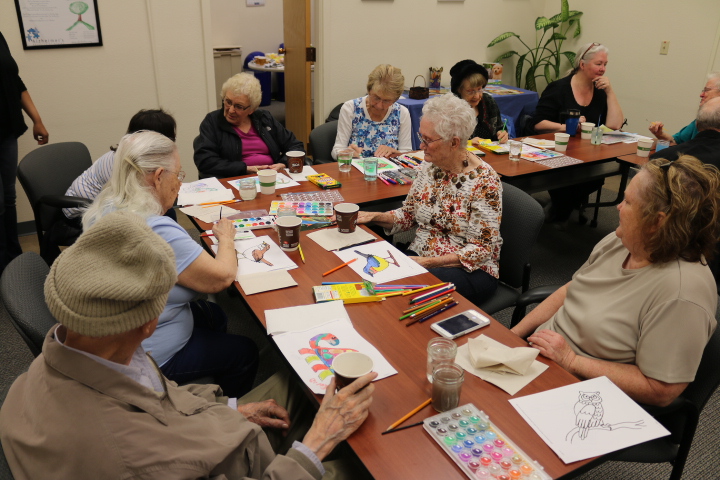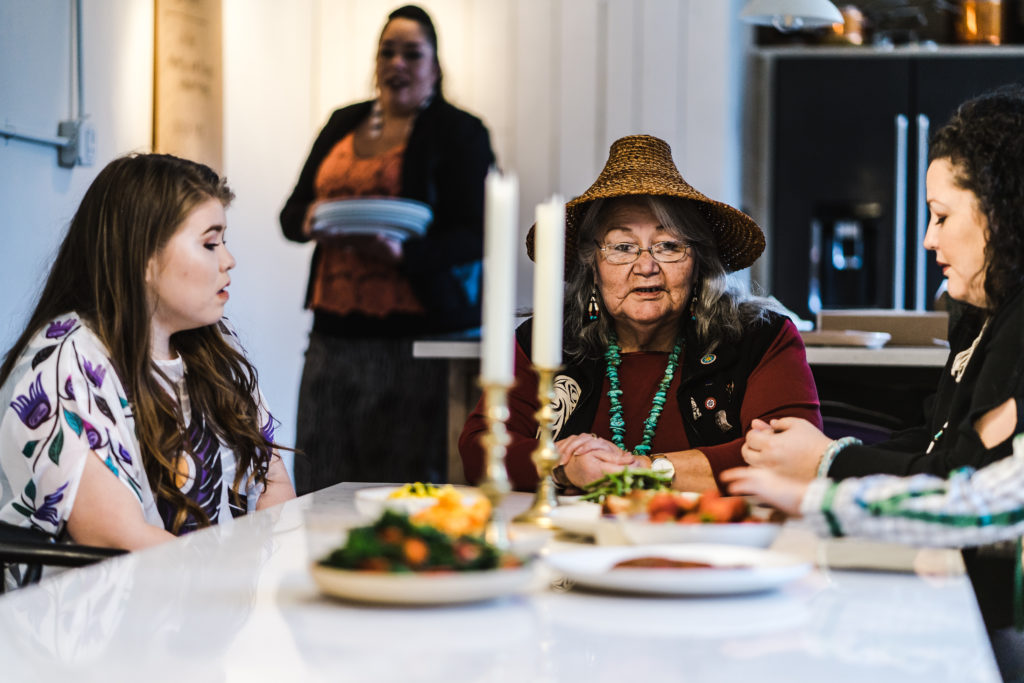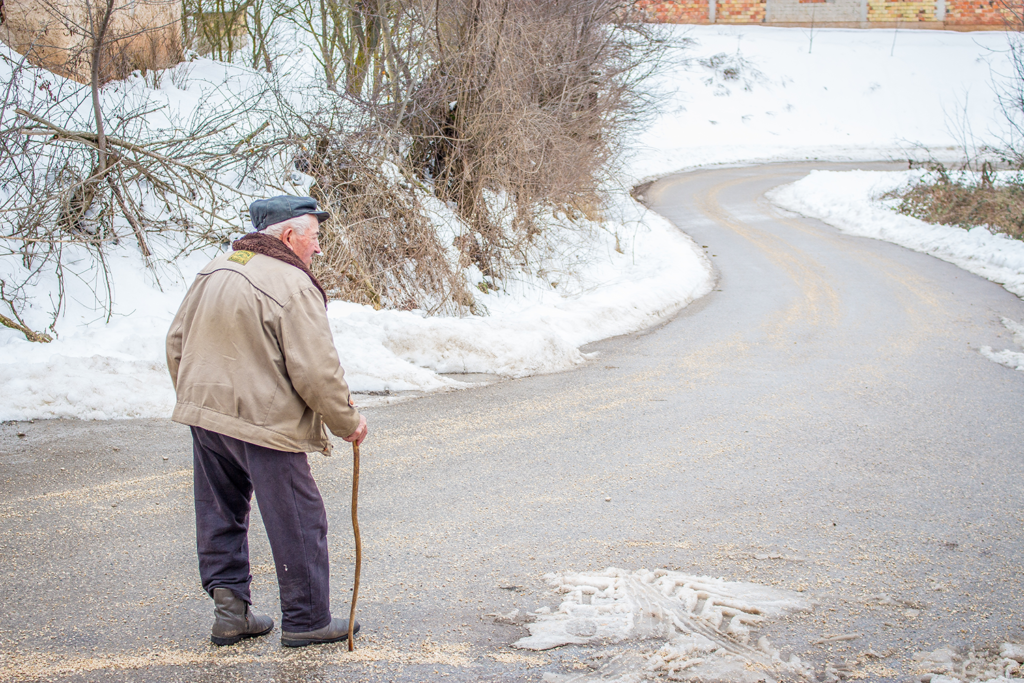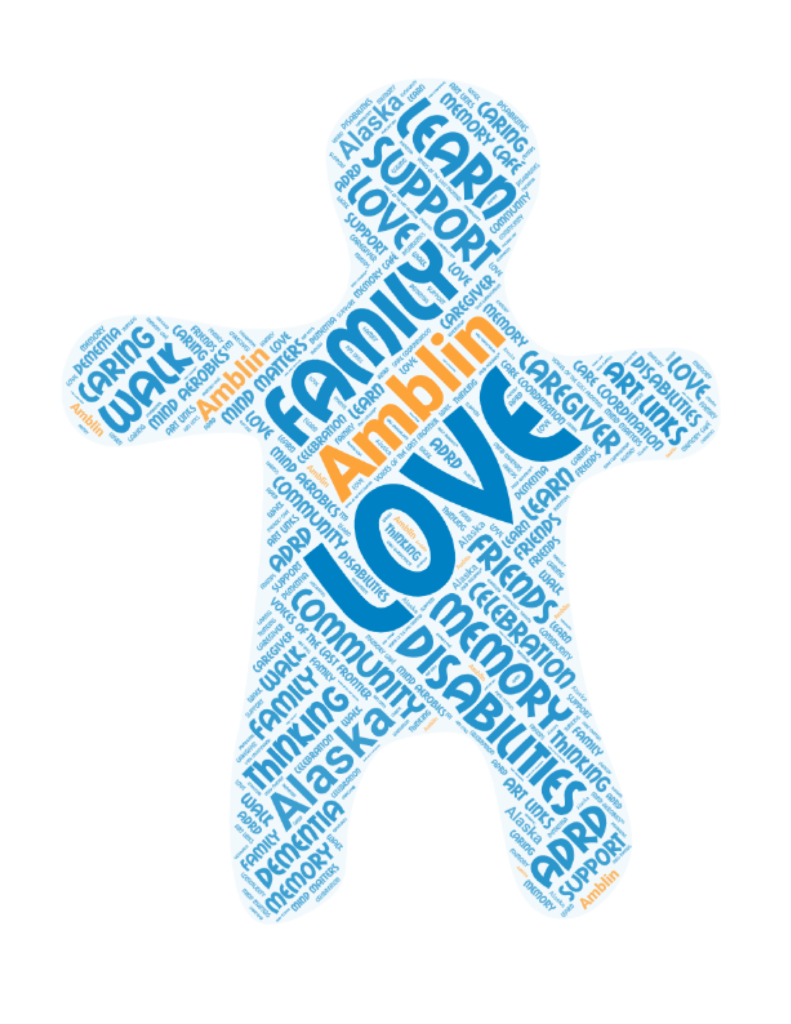Alzheimer’s and Dementia Info Pages
Alzheimer’s disease is a progressive neurologic disorder that causes the brain to shrink (atrophy) and brain cells to die. Alzheimer’s disease is the most common cause of dementia — a continuous decline in thinking, behavioral and social skills that affects a person’s ability to function independently.
Explore the pages below to learn more.
10 Steps in Planning for the Future

Caring for someone with a progressive dementia brings about many new challenges and new things to learn. These ten steps can help caregivers provide the best possible care for those with a progressive dementia, while maintaining their own health and well-being. Read more…
10 Warning Signs

Progressive dementias are not part of normal aging. Here are 10 warning signs that you should schedule a memory screening or consult a health care professional. Read more…
About Alzheimer’s Disease

What is Alzheimer’s? We’ll explain and take a look at the symptoms, diagnosis, treatments and discuss the research. Read more…
Activities for Adults with Dementia

Activities help avoid “Empty Day Syndrome” and helps behaviors such as “Sundowning” and wandering. Read more…

Although it may be difficult to acknowledge that your loved one can no longer be cared for at home, it’s never too early to explore assisted living home options. Here are some things to consider. Read more…

Caring for someone with a progressive dementia brings about many new challenges and new things to learn. These steps can help caregivers provide the best possible care for those with a progressive dementia, while maintaining their own health and well-being. Read more…

Restlessness, agitation, striking out, and outbursts are usually brief, although at the time it doesn’t seem that way. Unfortunately, this type of behavior is sometimes a distressing consequence of many of the dementias. Read more…

As a caregiver, you need to communicate with many people. You need to connect with family, friends, co-workers, employers, healthcare professionals, insurance companies — and a loved one who may not be the same person he or she used to be. Read more…

Early and careful evaluation is important because many conditions, including some that are treatable or reversible, can cause dementia. Potentially reversible conditions include depression, adverse drug reactions, metabolic changes and nutritional deficiencies. Read more…

Alzheimer’s disease and related dementias can cause a decline in everyday activities including dining. Many individuals still maintain strengths or overlearned behaviors and eating can be one of those. As the disease progresses some may need help getting started eating, but may be able to continue once they begin the activity. Here are some tips to maintain independence or assist as needed with dining. Read more…

Individuals with progressive dementias often demonstrate challenges in judgment and performance behind the wheel. Caregivers should look for these signs which might indicate a person with dementia should no longer drive or should be evaluated by a professional… Read more…
Introducing Services

Once the decision has been made to bring services into the home or involve your loved one in a day program, it is important to think about how to introduce the change. Read more…
Treatment for Common Conditions and Symptoms for People with Dementia

We’ve listed treatments for common conditions and symptoms for people living with Dementia. Read more…
Medications & Dementia

Managing the changes associated with dementia requires a thoughtful approach. Any dramatic or sudden change in cognition, movement or behavior should be evaluated for a medical condition that may require treatment, such as an infection or pain. Read more…

Progressive dementias are not part of normal aging. Progressive dementias are illnesses which can lead to a loss of cognitive abilities… Read more…
Prevention

Although the risk of developing an ADRD increases with age, these dementias are not a part of normal aging. Furthermore, although genes do play a role in the development of some of these dementias, having a history of an ADRD in your family does not guarantee that you will have one of the dementias someday. Read more…
Strategies for Wandering Behavior

Wandering can often become an issue when a person has a progressive dementia. These strategies may help Read more…
Stages and Symptoms

These are typical stages and symptoms for people living with Alzheimer’s Read more…
Talking with Children about Alzheimer’s

When a family member is diagnosed with some type of dementia everyone in the family is affected, including children and grandchildren. Children see parents’ uncertainty, feel their sadness, and hear their frustration Read more…
Traveling with Alzheimer’s

At some point, traveling with your loved one who has dementia may not be possible. Talk with your doctor and service providers as well as your family prior to planning a trip. These tips will make traveling with someone who is living with dementia a little easier. Read more…
- 10 Steps in Planning for the Future
- 10 Warning Signs
- About Alzheimer’s Disease
- About ADRD
- Activities for Adults with Dementia
- Assisted Living Homes
- Caregiver Checklist
- Combativeness
- Communication Tips
- Diagnosis
- Dining & Dementia
- Driving and Dementia
- Introducing Services
- Treatment & Medications
- Medications & Dementia
- Normal Aging vs. Alzheimer’s
- Prevention
- Strategies for Wandering
- Stages and Symptoms
- Talking with Children about Alzheimer’s
- Traveling with Alzheimer’s
 Make a Payment
Make a Payment



